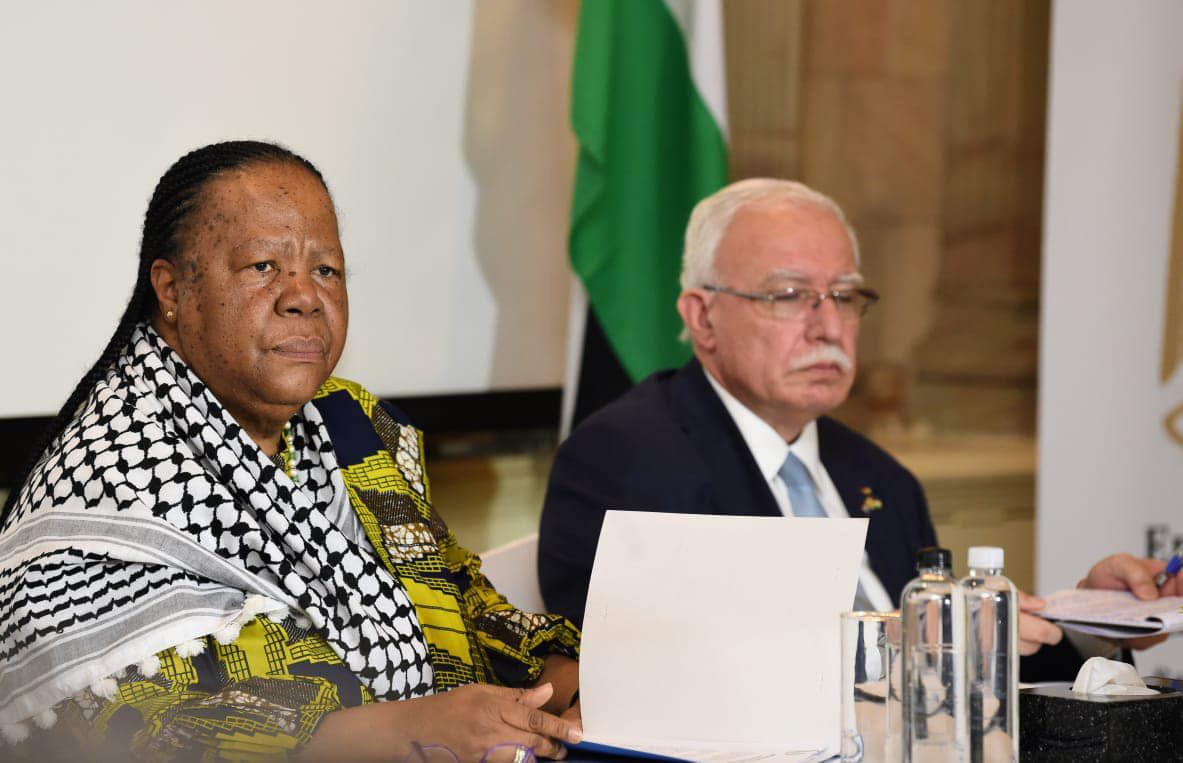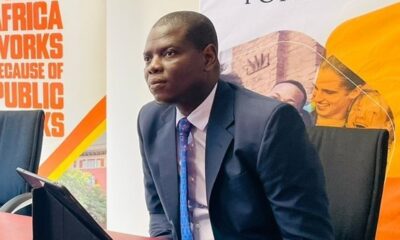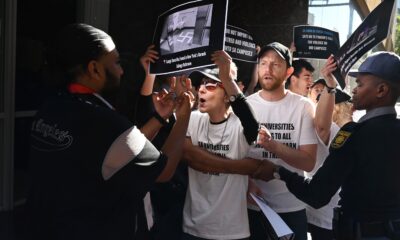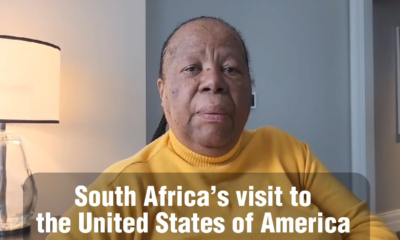
News

Government funds Palestinian embassy with taxpayer millions
It’s one thing for the South African government to have an anti-Israel stance, but it’s a whole different ball game when the department of international relations and cooperation (Dirco) admits to funnelling millions of taxpayers’ hard-earned money into funding the Palestinian embassy in South Africa since it opened in 1995, at about R1.3 million a year.
Since 2018, Dirco has given R8 999 932 of taxpayers’ money to the upkeep of the Palestinian embassy in South Africa. According to The Angel Network’s Glynne Wolman, this money could provide “3 600 000 meals from our soup kitchens”. This amount doesn’t include the money Dirco provides for training embassy staff.
It all became clear when Freedom Front Plus Member of Parliament (MP) and chief whip, Dr Corné Mulder, asked Dirco Minister Naledi Pandor about her department funding both the Palestinian embassy and the Saharawi Arab Democratic Republic (SADR) embassy in South Africa.
“It’s the first time I’ve seen figures put to what has long been suspected – that the South African government makes payments to these embassies,” says local political analyst Steven Gruzd. “These are two causes that South Africa has been very consistent about and sees as its duty to support as ‘anti-colonial struggles’. The taxpayer must ask if this is money well spent. Aren’t there many more priorities in South Africa that require attention than paying for foreign embassies on our own soil? And [there’s] a huge training budget as well. It doesn’t seem like the best use of resources.”
Asked if other countries fund foreign embassies on their soil, Gruzd says, “They might, but frankly I have never heard of it in 25 years of working in international affairs and diplomacy. Embassies are the sovereign territories of other countries and in theory, they should be entirely responsible for their own costs.”
Former diplomat Brooks Spector says, “To the best of my knowledge, no. This isn’t standard practice. Many countries do provide various forms of foreign assistance to ‘states’ that aren’t representing formal, de jure governments.”
MP Michael Bagraim says, “The reality is that South Africa somehow always finds the need for vanity projects. This suits the minister and her agenda. In essence, most of our country is lacking in basic amenities. People are literally starving, and almost 90% of our municipalities can’t provide the basics. However, we find millions for something that adds nothing to help people. This government is incorrigible.”
MP Darren Bergman, the shadow minister of international relations and cooperation, says he has always believed such payments were being made. “There should be key performance targets given to embassies being subsidised so that money is being utilised for growth, development, and building relationships. Otherwise it just becomes a funnel for taxpayers once again to pay for services they cannot access,” he says.
“The South African Zionist Federation (SAZF) has serious concerns about Dirco spending millions of taxpayers’ money on these embassies,” says SAZF National Chairperson Rowan Polovin. “The Palestinians have received $37.2 billion [R626 billion] of international aid since the Oslo Accords in 1993. Why should South Africans be forced to contribute towards the running of a Palestinian embassy which ferments hate and anti-Israel sentiment in South Africa?
“Dirco was taken to court in May for giving R50 million to Cuba,” Polovin says. “Dirco has also been reducing South Africa’s own embassy staff around the world, yet South African taxpayers bear the cost of running foreign embassies. Given South Africa’s crippling challenges, it’s immoral and shameful to spend taxpayer funds on propping up authoritative regimes that promote an anti-Israel and anti-peace agenda. This money would be better spent on solving problems at home.”
The Palestinian embassy spends most of its time bashing Israel, as can be seen on its social-media platforms. Even on Mandela Day, 18 July, it sought to sow divisions over the Israeli-Palestinian conflict instead of taking part in the unifying spirit of the day.
And on 21 July, it made the following claims, “The State of Palestine strongly condemns Israeli colonial occupation’s ongoing war crimes and land theft. Land theft is an Israeli national project undertaken by every branch of Israel’s government and facilitated by Israeli officials. It’s a state-sanctioned crime. Far from being an enterprise of a small, warped minority of settler ideologues, settler militias methodically and strategically work hand in glove with Israeli officials to cleanse the land of its rightful owners, displace the Palestinian people, and replace them with illegal settlers.”
Mulder told the SA Jewish Report that he asked questions because, “We have been watching this issue for a while, believing that the South African government was spending money on certain embassies. We suspected that it supported the Palestinian embassy, but was surprised to see that it involves the Saharawi Republic as well. My intention is to follow up on this with further questions.”
Both groups have embassies in Pretoria and maintain bilateral relations with South Africa. The Western Sahara conflict is an ongoing conflict between the SADR/Polisario Front and the Kingdom of Morocco.
Mulder posed a written parliamentary question, to which Pandor responded. “The details of the expenses covered by the financial aid include maintenance of the Palestinian and SADR embassies in Pretoria,” she said. She said payments to the Palestinian embassy have been made since 1995, while payments to the SADR embassy have been taking place since 2018.
”From 2018/2019 to the 2022/2023 financial year, the department paid a total of R8 999 932 to the Palestinian embassy, which is approximately R1.3 million a year. With regard to the SADR embassy in Pretoria, the department contributes R1 948 100 annually with a 10% adjustment after every two years,” she said.
In addition, Dirco has provided funding for training and guest speakers at these embassies. “The expenses for training programmes for foreign delegations have been paid from Dirco’s budget for training and skills development,” she said. “These training payments aren’t regarded as foreign aid. Dirco procures a service provider to present these training programmes and pays the training fees directly to the service provider.”
She said fees paid to South African presenters “are based on the department of public service and administration’s guidelines. In addition to presenter’s fees, the training expenditure also covers subsistence and travel as well as international air travel for participants.”
Pandor addressed the “Palestinian Heads of Mission in Africa Conference” on Tuesday, 26 July. See story on page 5.











Cristine Rybnikar
July 29, 2022 at 3:39 pm
Hate this government of ours. Hate. Hate it. This amount of stupidity should be lethal.